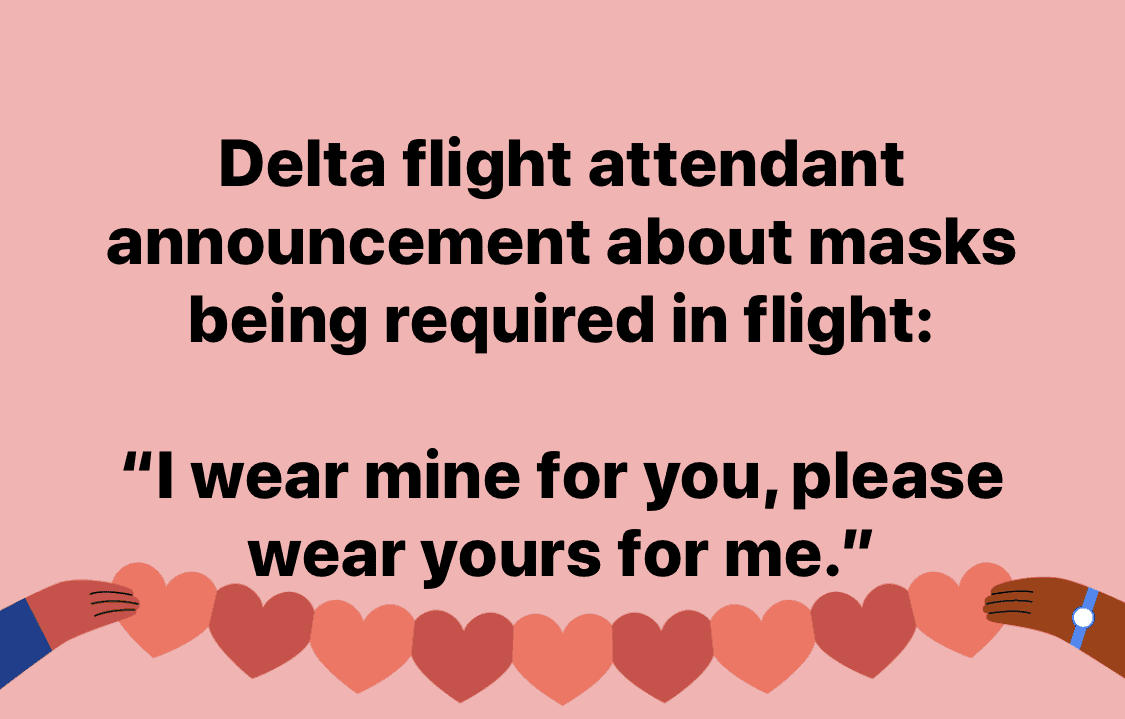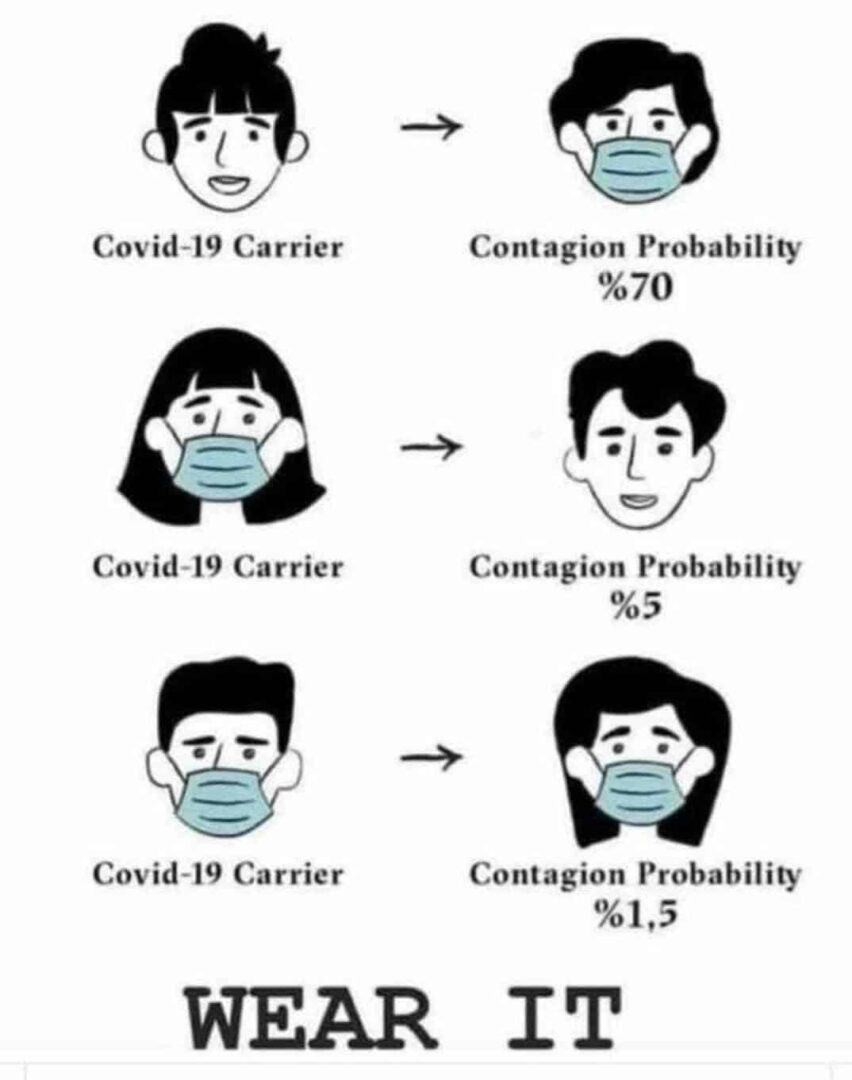So after my bad experience with American Airlines during Covid-19, I decided to try flying Delta when I had to go back to Orlando for my movers to pack up the old place.
I've heard a lot of good things about Delta in recent years from business colleagues and one co-worker recently flew them and said everybody was wearing masks (which is good since Delta, like other airlines, says they are “required”).
One lesson from the world of Lean (and from “motivational interviewing“) is that we need to do better than just get compliance from people.
Likewise, the “Training Within Industry” method also teaches us that we should explain why things are done a certain way instead of just staying, “Do it because I said so” or “Do it because I'm the boss.”
Explaining why is a way to treat people like adults — it's a way to show “respect for people” as Toyota says.
So, on that first Delta flight (where I saw everybody boarding with masks), the flight attendant made her pre-flight announcement about masks being required.
She didn't just bark the command… she said something like:
“I wear my mask for you, please wear yours for me.”
As I shared on Facebook for friends:

Wearing a mask isn't just about protecting yourself from the coronavirus. Many masks provide an imperfect barrier, but it's better than nothing.
But masks, even cloth masks, are said to do a better job of blocking outbound droplets that could carry the virus. Even if you don't have symptoms and you're not sick, you should assume you're an asymptomatic carrier.
Therefore, wearing a mask isn't just a “personal choice” — it's about being kind and helpful to others. You might be willing to take a risk with getting sick, but do you really want to spread it to others?
Here is an article that says more, including:
“Masks can be worn to protect the wearer from getting infected or masks can be worn to protect others from being infected by the wearer. Protecting the wearer is difficult: It requires medical-grade respirator masks, a proper fit, and careful putting on and taking off. But masks can also be worn to prevent transmission to others, and this is their most important use for society. If we lower the likelihood of one person's infecting another, the impact is exponential, so even a small reduction in those odds results in a huge decrease in deaths. Luckily, blocking transmission outward at the source is much easier. It can be accomplished with something as simple as a cloth mask.”
Here is a visual that helps illustrate that point, even if the numbers are said to not be exactly right:

“CDC can't confirm the accuracy of the numbers reflected in this image,” they said in a statement. “Currently we are not finding any data that can quantify risk reduction from the use of masks”
So not only can they not confirm these numbers, but they also don't have numbers for cloth masks themselves.
Either way, I was disappointed to hear this story from another colleague this past week, as he said:
“The guy two seats over refused to wear a mask. They gave him a mask, he put it in the seatback in front of him, put on headphones, and ignored them.”
I thought the airlines reiterated that masks were “required”? The airlines are not following through on their renewed commitments… sad.
That might sell tickets in the short term (by promising that masks are “required”) but it's going to hurt their business in the long run if they don't follow through on that commitment.
Please scroll down (or click) to post a comment. Connect with me on LinkedIn.
Let’s build a culture of continuous improvement and psychological safety—together. If you're a leader aiming for lasting change (not just more projects), I help organizations:
- Engage people at all levels in sustainable improvement
- Shift from fear of mistakes to learning from them
- Apply Lean thinking in practical, people-centered ways
Interested in coaching or a keynote talk? Let’s talk.
Join me for a Lean Healthcare Accelerator Trip to Japan! Learn More










Probably not much the airline could do in flight about the doofus not wearing a mask. Drag him from his seat and beat him up probably not an option any more. But post flight…. ah, the fun they could have post flight. “Sorry, Mr. Doofus, your return flight has been cancelled and we’ve put you on our Do Not Fly list.”
The airlines have threatened to ban passengers… and they did ban the one AA passenger who got kicked off pre-departure for the political stunt that he pulled.
American Airlines Bans Passenger Who Refused to Wear Mask
An alliance of airlines had previously announced that they would ban passengers, so he shouldn’t be surprised. He’s been banned until masks are no longer required.
I did fly American Airlines one more (one last?) time in early July.
The flight attendant made announcements about “face coverings” being a “CDC requirement.” They also talked about wearing them out of “consideration for others.”
From a language standpoint, wouldn’t “nose and mouth covering” be more clear??
Hi Mark-
It is so crazy that the littlest task is so difficult for people. Many people refuse to wear a masks even though it causes the slightest convenience. Explaining to people ‘why’ is so important because it shows them a new perspective without them feeling as though you are degrading their knowledge. The way the flight attendant approached the situation is a great way to explain why we are wearing them, without acting as if you are superior to them. This is going to be an ongoing issue, and explaining ‘why’ is going to be very important. Great article and perspective on the issue!
Comments are closed.